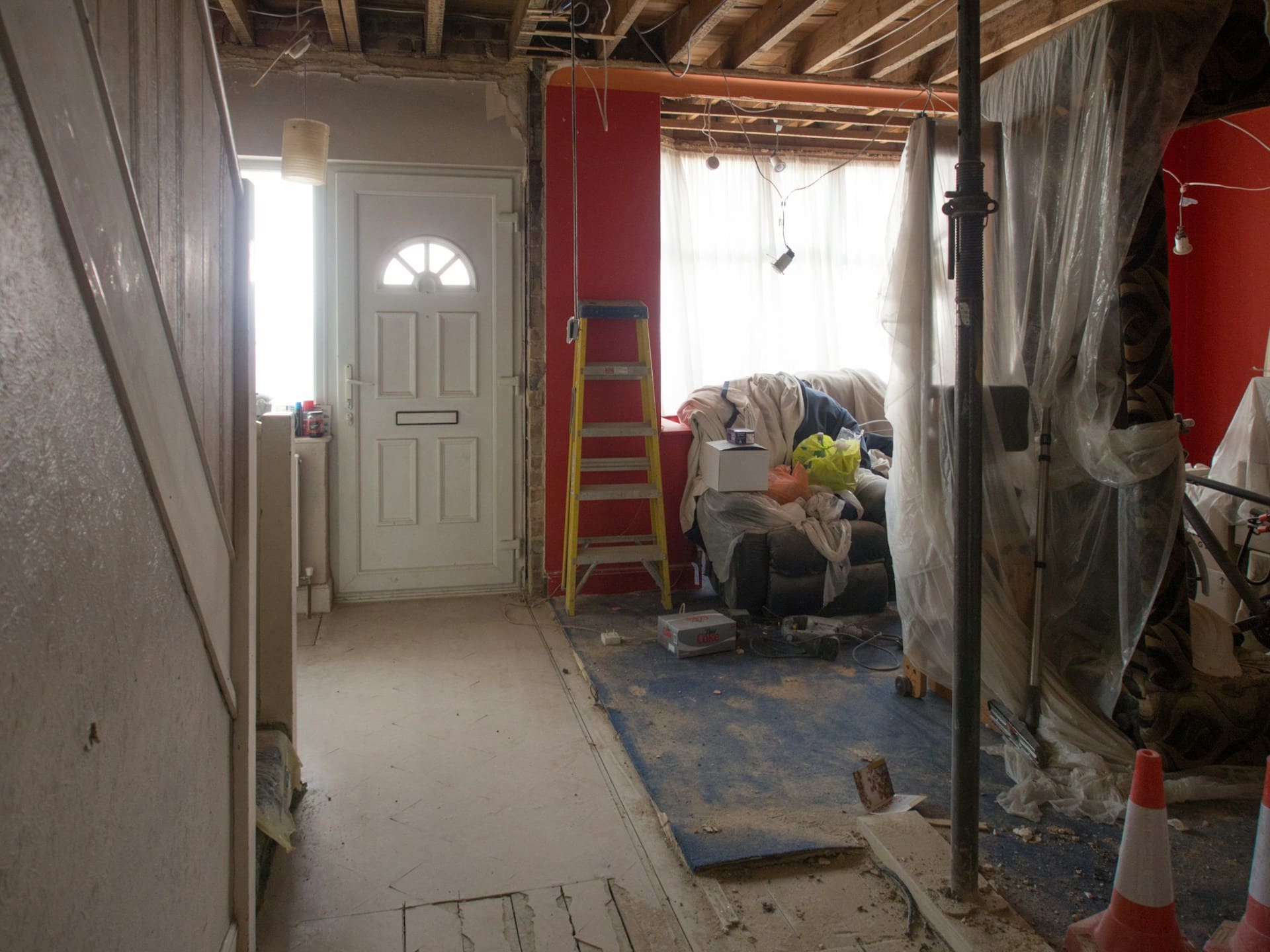If you’re about to move into a house in the UK that has a history of water damage, this guide will equip you with the knowledge and practical advice needed to navigate this complex process. Water damage can be a significant concern for property owners and tenants alike. It can lead to structural issues, cause a variety of health problems, and potentially even impact your insurance coverage. But don’t despair: with a little foresight, discretion and a proactive approach, you can overcome these hurdles and turn your water-damaged house into a comfortable, safe, and dry abode.
Identifying and Assessing the Water Damage
Before moving into a property with a history of water damage, it’s crucial to identify and assess the extent of the damage. A professional home inspection will help you uncover any hidden issues and potential costs that could arise down the line.
Lire également : Discovering digital nomad communities in vibrant lisbon
Water damage typically manifests through damp patches, mould growth, peeling paint, warped walls or flooring, and a musty smell. However, some damage might be hidden behind walls or under floors, such as rot or structural damage. A professional home inspector can use moisture meters and infrared cameras to find these hidden problems.
Another aspect to consider is the source of the water damage. Was it a result of a one-time flood, or is there a persistent issue like leaky plumbing or poor drainage? If the source of the problem hasn’t been addressed, you risk further damage and expenses after moving in.
A découvrir également : How can you efficiently organize and pack a wardrobe of delicate vintage clothing for a UK move?
Addressing the Damage: Repairs and Renovations
Once you’ve identified the extent of the water damage, the next step is to address it. This might involve simple repairs, or more extensive renovations, depending on the severity of the damage.
In some instances, you might be able to dry out damp areas, scrub away mould, and repaint the walls. However, if the damage is extensive, it might be necessary to replace damaged materials like drywall or flooring, or even undertake structural repairs.
Costs for these repairs can vary significantly. For small fixes, you might only need a few hundred pounds, while major renovations could cost thousands. Always get multiple quotes from different contractors to ensure you’re getting a fair price.
In addition, remember that in the UK, as a tenant, you have the right to live in a home that is safe and in a good state of repair. If the landlord is responsible for the water damage, they’re required to fix it as part of their ‘repairing obligations’.
Understanding Your Insurance Coverage
If you’re buying the house, you may want to check whether the existing damage will impact your ability to get homeowners insurance, or if it will affect your premiums. The same applies to renters’ insurance if you are renting the property.
Water damage can be a tricky subject when it comes to insurance. Not all policies cover all types of water damage. For instance, damage from a sudden incident like a burst pipe is often covered, but damage due to lack of maintenance or repair might not be.
Similarly, flood damage is not typically included in standard home insurance policies in the UK. If the property is in a flood risk area, you may need to purchase additional flood insurance. It’s therefore essential to read your policy carefully and consult with your insurance provider to understand what is covered.
Preparing for Future Water Damage
Even after you’ve addressed the existing damage, it’s wise to prepare for the future. Given the UK’s wet climate, water damage can reoccur if not properly managed.
Investing in a good drainage system, installing a sump pump if you have a basement, or even raising appliances off the ground can help protect your home from future flooding. Regular maintenance, such as inspecting and clearing gutters and downspouts, can prevent water from accumulating and causing damage.
If the property is in a flood-prone area, consider implementing flood-resistant measures, such as flood doors, air brick covers, or non-return valves in your drainage pipes.
Seeking Legal Advice
Finally, if you’re renting, it’s worth seeking legal advice to understand your rights and responsibilities regarding water damage. Landlords have a legal responsibility to ensure their properties are safe and habitable, which includes addressing water damage.
If you notice water damage after moving in, notify your landlord immediately. If they fail to make necessary repairs, you may be able to take legal action or make a claim through your local council’s environmental health department.
Remember, it’s crucial to keep records of all communication with your landlord and any steps taken to address the problem. These records can be invaluable if you need to pursue legal recourse or make an insurance claim.
While moving into a home with previous water damage might seem daunting, it’s not impossible. With careful inspection, proactive measures, and a thorough understanding of your insurance coverage and legal rights, you can ensure your home is safe, dry, and comfortable to live in.
How To Deal With Temporary Accommodation
In the event of heavy water damage to your new home, it may be necessary to arrange temporary accommodation while repairs are being conducted. This could be a daunting prospect, but with the right plan, it’s manageable.
Firstly, you should contact your estate agent or landlord as soon as the water damage is identified. They might have contingency plans in place for such situations, or they could assist in finding a suitable temporary accommodation.
If you’re the homeowner, check with your home insurance company. Some policies cover costs of temporary accommodation during repairs. If you’re a tenant, your contents insurance may offer similar benefits. Ensure to read your policy carefully and consult with your insurance provider to confirm what is covered.
Once you’ve sorted out where you’ll be staying, focus on your belongings. If you’re dealing with water leaks or flood water, move your contents to a dry and secure location to prevent further damage. It’s also important to make an inventory of your damaged items, as you may need this for your insurance claim.
Keep in mind that the cost of moving and storage will likely be part of your claim, so remember to keep all receipts and documentation to provide to your loss adjuster.
Your Rights and Responsibilities as a Tenant or Buyer
As a tenant or buyer, knowing your rights and responsibilities is crucial when dealing with water damage. If you are renting, the landlord is typically responsible for dealing with structural water damage, unless it has been caused by the tenant’s actions.
If you are buying a house, it is your responsibility to ensure that the property is thoroughly surveyed before purchase. An estate agent can help you with this process. If water damage is found, you can negotiate the costs of repairs with the seller or even reconsider your property choice.
However, once the property is bought, the responsibility of dealing with any damage lies with you. This includes contacting your local council if the water leak is public and your home insurance company for making an insurance claim.
If you are in a rented property and your landlord is not taking the necessary steps to remedy the issue, contact your local council’s environmental health department. They can investigate and take action if necessary.
Conclusion
In conclusion, moving into a home with previous water damage issues can seem challenging, but it can be done effectively with the right knowledge and approach. From identifying the extent of the damage, consulting the right professionals, understanding your insurance cover, preparing for future damage and knowing your rights and responsibilities, every step is crucial to ensure a safe and comfortable living environment.
While dealing with potential repairs or renovations can be daunting, remember that in the UK, there are legal provisions and insurance policies that can help you navigate these challenges. Always maintain open communication with your estate agent, landlord, or insurance company, keep records of all interactions, and don’t hesitate to reach out for legal advice if necessary.
Though a home with water damage history requires extra attention and care, it can ultimately be transformed into a comfortable, safe, and dry abode. With proactive measures, diligent maintenance, and a comprehensive understanding of your insurance coverage and legal rights, you can navigate the complexities of water damage and create a home that is truly your own.










